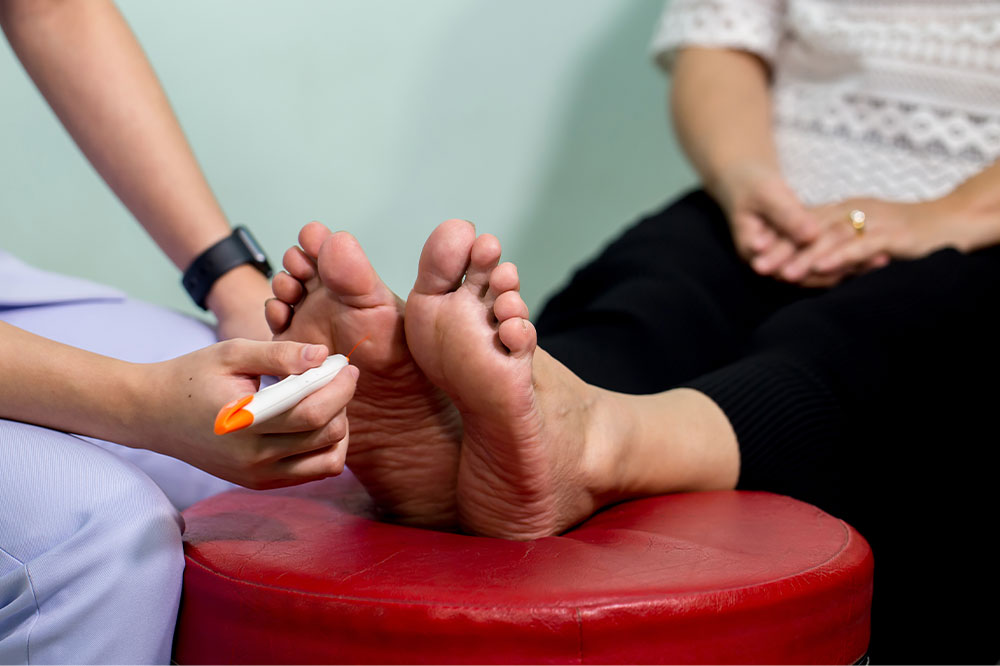
Everything to know about neuropathy
Neuropathy can be a debilitating condition, but there is hope. It has different symptoms and can be caused by various reasons. However, there are treatments available that can help improve the quality of your life. In this post, we’re going to cover everything you need to know about neuropathy, from its causes to its treatments. Keep reading to learn more about the treatments for neuropathy and how they can help you manage your condition.
What is Neuropathy?
Neuropathy is a general term for a nervous system disorder, including the brain, spinal cord, and nerves. It is a condition in which the nerves that connect your brain and spinal cord are damaged. This can lead to problems with sensation, movement, and balance.
Types of neuropathy
Neuropathy is a condition that affects the nerves, and several factors can cause it.
- Proximal neuropathy is the most common type of neuropathy. It occurs when damage or inflammation to the nerve roots (the branches of nerves that exit the brain) causes problems with communication between different parts of the body.
- Peripheral neuropathy occurs when damage or inflammation affects peripheral nerves outside the central nervous system.
- Autonomic neuropathy is a type of autonomic neuropathy that involves problems with nerve function in areas like digestion and bladder control.
- Focal neuropathies are rarer neuropathy affecting the specific brain or spinal cord areas.
- Cranial neuropathies involve damage to cranial nerves, responsible for controlling movement and sensation in various parts of your head and neck.
Causes of neuropathy
While there are many possible neuropathy causes, some of the most common include trauma, genetic disorders, bacterial infections, and endocrine disorders.
- Traumas to the spine or other body parts can damage the nerves and lead to neuropathy.
- Genetic disorders can also cause nerve damage and lead to neuropathy.
- Bacterial infections can attack and damage nerves, causing inflammation and pain.
- Endocrine disorders can interfere with the nervous system’s proper functioning, leading to neuropathy.
If you are experiencing neuropathy symptoms, you must see a doctor for an accurate diagnosis.
Symptoms of neuropathy
Neuropathy may develop slowly over time or suddenly after an injury or infection. The symptoms of neuropathy vary depending on the part of the affected nervous system and include:
Muscle weakness
Muscle weakness may be caused by damage to nerve cells in the muscles or their connections to other nerves.
Numbness
This occurs when there is damage to sensory nerves, which send information about touch, temperature, pain, and pressure sensations from your skin directly to your brain.
Paralysis
This happens when a person’s ability to move their limbs becomes impaired due to damage in the spinal cord or peripheral nerves (the long, thin branches of nerve cells connecting different parts of your body).
Treatment options for neuropathy
- Acupuncture is a treatment that uses needles to stimulate specific points in the body to relieve pain. The needles are inserted into these points using gentle pressure, which helps improve blood flow and reduce inflammation. Acupuncture is usually adequate for treating short-term or localized pain but may not be as effective for long-term relief or chronic conditions.
- Medical treatment includes injections or pills. These can reduce inflammation or block nerve signals from reaching your brain. However, they are often prescribed when other treatments fail or symptoms don’t disappear after acupuncture or physical therapy.
- Physical therapy focuses on improving the range of motion, strengthening muscles, and restoring balance. This approach can improve overall function by helping you regain control over your movements.
- Surgery may be necessary if other treatments haven’t worked well enough or if an underlying medical condition needs to be treated.
- Wearable equipment like braces and walkers can provide temporary relief while you continue your regular treatment regimen.




